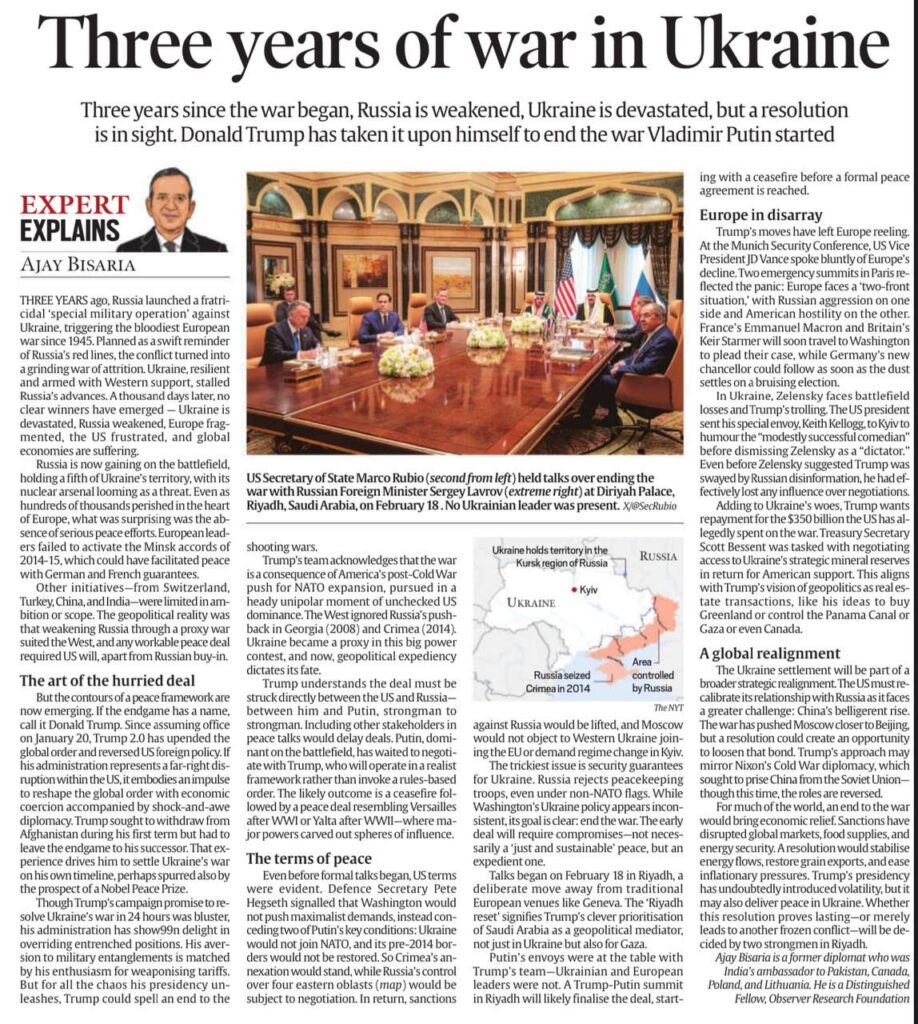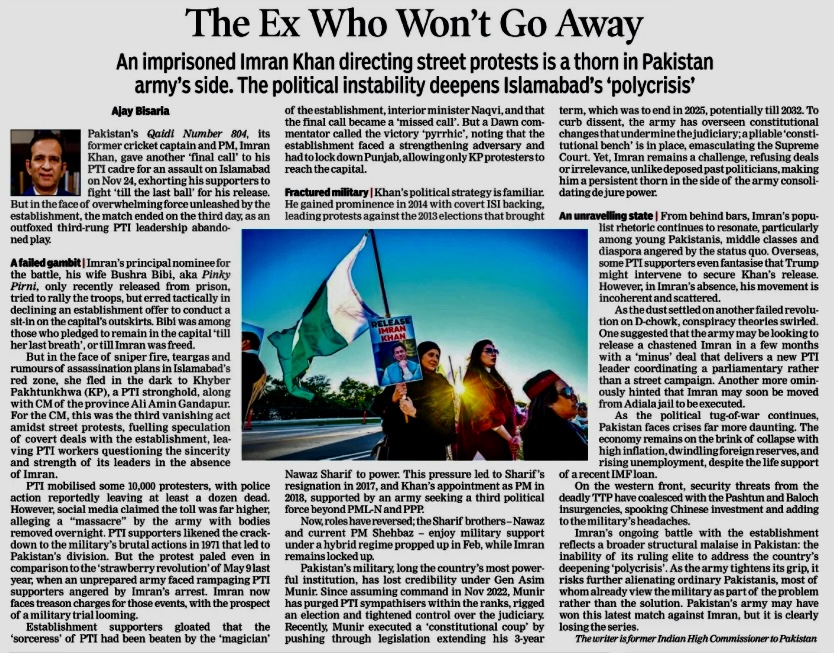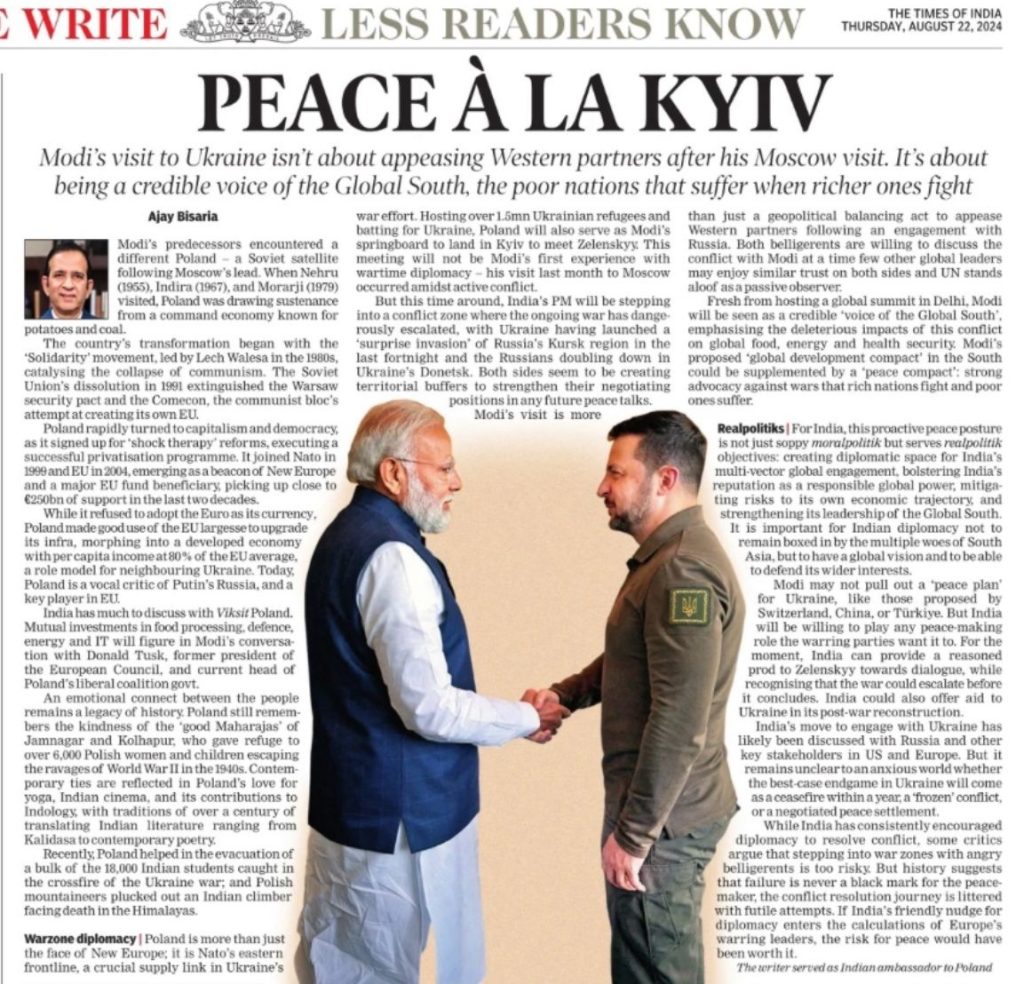Munir’s Dangerous Doctrine
Ultimately, the Munir Doctrine is a dead end. It substitutes belligerence for strategic thinking. It indulges the military’s worst instincts. In trying to cast himself as heir to Jinnah and Zia, Munir is embalming a vision of Pakistan that no longer serves its people—and driving it toward becoming a reckless, war-making garrison state.
Sindoor’s New Red Line
Pakistan, by contrast, embraces external involvement. It needs the optics. It declares every Western phone call a validation of its global stature, just as it rebrands military defeats as victories. The Pakistani military’s propaganda wing, ISPR, will undoubtedly package Op Bunyan Ul Marsoos as an unqualified victory —short war, operational brilliance, and international attention.
The same logic was deployed to claim triumph in 1965, 1971, and 1999, each a setback to Pakistan’s army. What really matters is control of the domestic narrative.
As India celebrates Op Sindoor, a robust debate will take place on strategic choices and operational success. Across the border, Pakistan will project its army chief, General Asim Munir, as a victor. He will expect that this limited conflict has bolstered his authority. It plays into long-standing paranoia about India, casting the army as the nation’s sole saviour.
India has now made a doctrinal pivot in its fight against terrorism. India does not need war—or passive restraint. It has delivered a credible, coercive slap against terrorism. But will that prevent the next Pahalgam? Will it make Pakistan rethink the costs of using terrorism as strategy? For India, deterrence is not about spectacle. It has reshaped the adversary’s calculus.
Why Pak army must now feel the heat
India must re-impose deterrence and reinforce security A lush meadow in Pahalgam was soaked in innocent blood this week, marking the most painful terrorist blow to India since 2008. As investigators confirmed Pakistan’s role in the massacre, 22/4 became another grim reminder that its western neighbour remains India’s primary adversary. Strategic neglect is not an […]
Carney’s Burden: Trump, Trade and A New World Order
With a mandate for economist Mark Carney in Monday’s Canadian elections, it is time to reset the damaged ties between Ottawa and New Delhi Among Donald Trump’s many unintended achievements during his first hundred days back in the Oval Office, one stands out north of the 49th parallel: he has given a leg up to […]
Managing a Tough Neighbourhood
India’s neighbourhood policy demands strategic patience, embracing occasional anti-India regimes, navigating Chinese competition, and rejecting zero-sum approaches. A durable framework for regional security and prosperity should prioritize grants over loans, emphasizing economic and security cooperation, connectivity, and humanitarian assistance. Engagement spans energy collaboration, development aid, defence partnerships, disaster relief, cultural exchanges, and infrastructure projects. Encouraging Quad partners like the U.S., Japan, and Australia to join South Asia’s economic initiatives will enhance regional stability, despite occasional differences. Reviving SAARC will offer a more manageable mechanism for dialogue, complementing sub-regional platforms like BIMSTEC and BBIN, while reducing reliance on the China-led SCO.
Three Years of War in Ukraine

Trump understands the deal must be struck directly between the US and Russia—between him and Putin, strongman to strongman. Including other stakeholders in peace talks would delay deals. Putin, dominant on the battlefield, has waited to negotiate with Trump, who will operate in a realist framework rather than invoke a rules-based order. The likely outcome is a ceasefire followed by a peace deal resembling Versailles after WWI or Yalta after WWII—where major powers carved out spheres of influence.
The Ex Who Won’t Go Away

An imprisoned Imran Khan directing street protests is a thorn in Pakistan army’s side. The political instability deepens Islamabad’s ‘polycrisis’. Pakistan’s Qaidi Number 804, its former cricket captain and PM, Imran Khan, gave another ʻfinal callʼ to his PTI cadre for an assault on Islamabad on Nov 24, exhorting his supporters to ‘fight till the […]
Dealing with Pakistan: India’s Western Neighbour is No Longer a Strategic Priority
India’s Pakistan policy has evolved over the last decade, from an attempted rapprochement in 2014-15, to a focus on stringent border management and counterterrorism. Even though India’s primary strategic challenge over the next decade would emanate from the north i.e. China- the country’s most recalcitrant western neighbour will continue to pose a sub-conventional security threat.
Peace À La Kyiv

Narendra Modi is on a bold diplomatic mission in an active war zone in the heart of Europe. His visit is the first in 45 years by an Indian prime minister to Poland and the first to independent Ukraine. Polishing Ties Modi’s predecessors encountered a different Poland—a Soviet satellite following Moscow’s lead. When Nehru (1955), […]
‘Strategic realism’ with ‘economic pragmatism’ — a former diplomat on ‘creative’ economic diplomacy
In fact, the larger framework for economic diplomacy should seek to balance commercial outreach with broader strategic foreign policy aims. Diplomats have moved from promoting trade agreements to more innovative means of dealing with a world in flux. The traditional instruments of promoting investment, exports and tourism have to be supplemented with additional pathways for achieving the national interest.